Frequency domain is a click away
When working with sound and vibration measurements, you will rarely stay only in the time domain. Sure, it’s important to quickly have a look at the measured channels, maybe even replay them for a more thorough validation, but without having a look at the frequency content, your information might not be complete. That’s why we’ve added Interactive Spectrum to Simcenter Testlab Neo. Simply enable it from the Audio replay ribbon, select a time trace and the frequency content of your data will be calculated and visualized on the fly.

Interactive Spectrum functionality in Simcenter Testlab Neo
But it might be interesting to try some what-if scenarios. Our audio replay supported filtering for a while now, but you can now also visualize the effect of those filters on the interactive spectrum. Let’s have a look and listen to an example of a window motor:
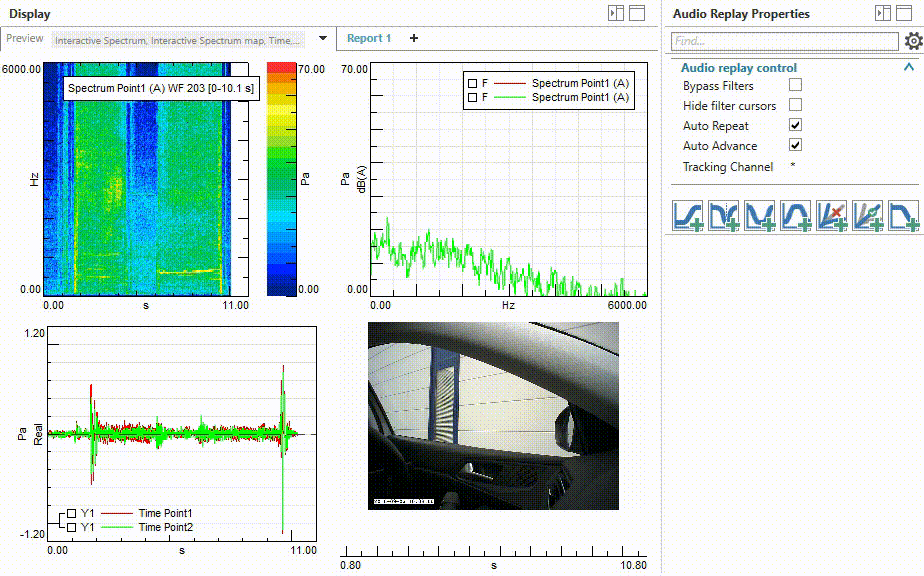
Interactive spectrum visualized the effect of applied audio filters instantaneously
The slightly unpleasant whine audible when the window closes can be easily filtered out. In case your subject under test is a bit more challenging, you can of course benefit from multiple filter types, including a band-pass, band-stop, notch, low and high pass or order filters.
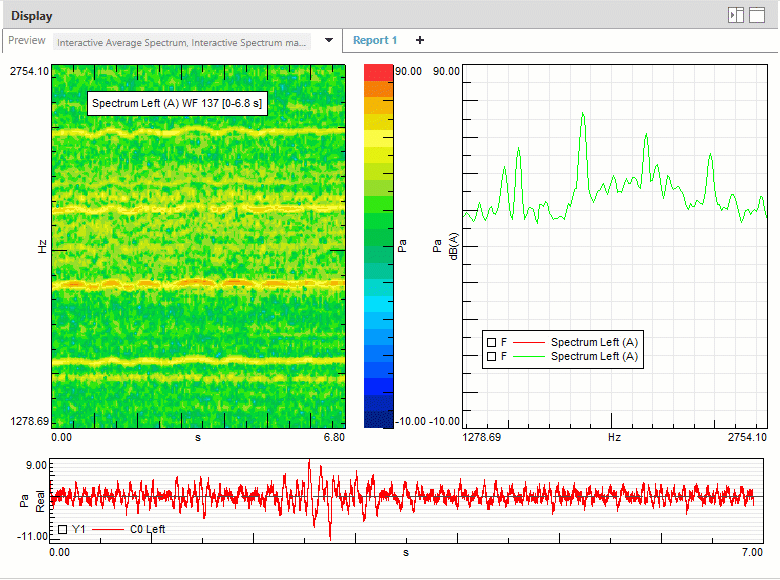
Interactive spectrum supports multiple filter types in parallel to fine-tune the sound of your product.
Focus on the issue at hand
The second extension may be small, but it is definitely powerful. Simply select a segment by holding down the Alt key. Press play and the replay cursor will automatically jump to the start of your segment.
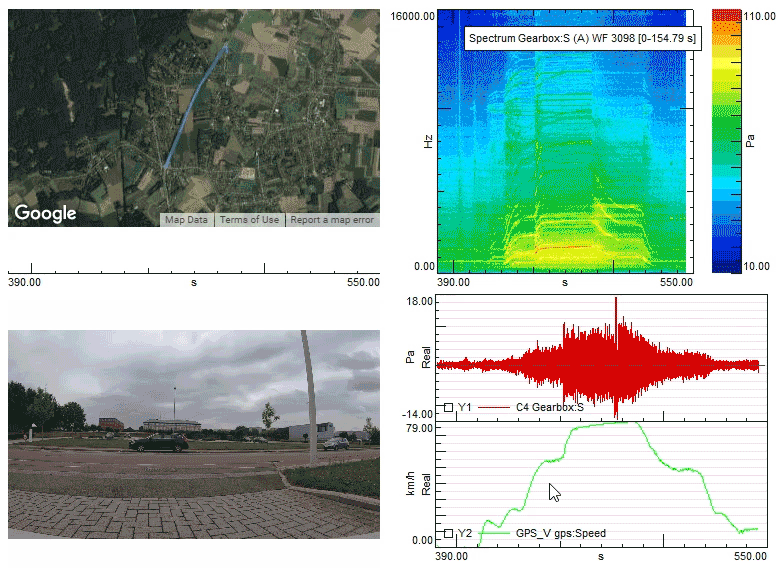 Use the segments to replay selected areas of a measurement
Use the segments to replay selected areas of a measurement
Wondering if multiple segments are supported? Sure they are!

Multiple segments can be helpful when your measurements contains a lot of transient noise
Rank your sounds
Next to subjective sound quality analysis, it is important to conduct objective listening tests. Jury testing is a great way to collect subjective feedback and link it to your everyday sound and vibration analysis. In order to make it even easier, we’ve just added a new test method called “Ranking”.
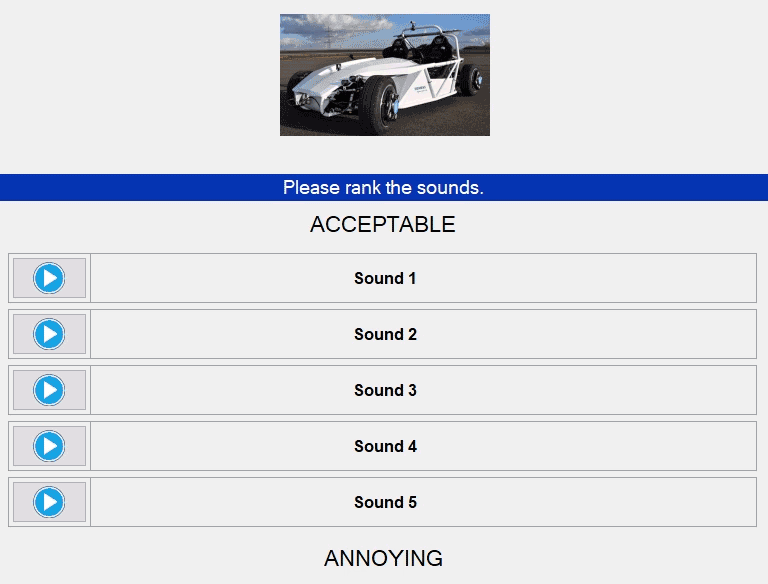
Rank sounds based on your personal preference
Jurors can now quickly compare and rearrange the order of the sounds based on the criteria designed by a test moderator.
Know more about your jurors
Last but not least, the highly awaited result filtering based on jury questions is finally here. Why would you do it? Narrowing down the answers based on the statistical questions allows you to quickly validate trends based on juror location, age or experience with your product. Example below shows the jury test results in function of the car type driven by the jurors.
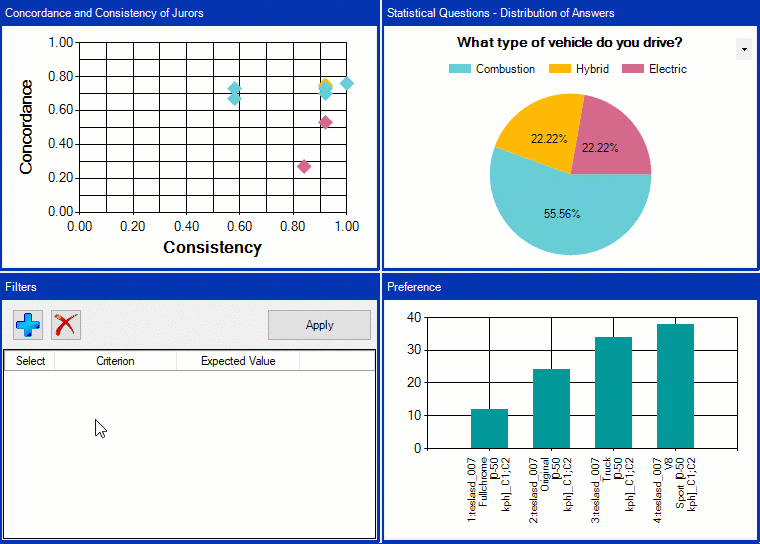
Filtering jury test results based on the statistical questions can give you extra insight
And this wraps it up for 2021.1 Simcenter Testlab Sound Quality extensions.
Read more about Simcenter Testlab 2021.1
Keep up with the latest from Dipolo. Subscribe to our newsletter.
 Deutsch (Deutschland)
Deutsch (Deutschland)  English (UK)
English (UK) 

